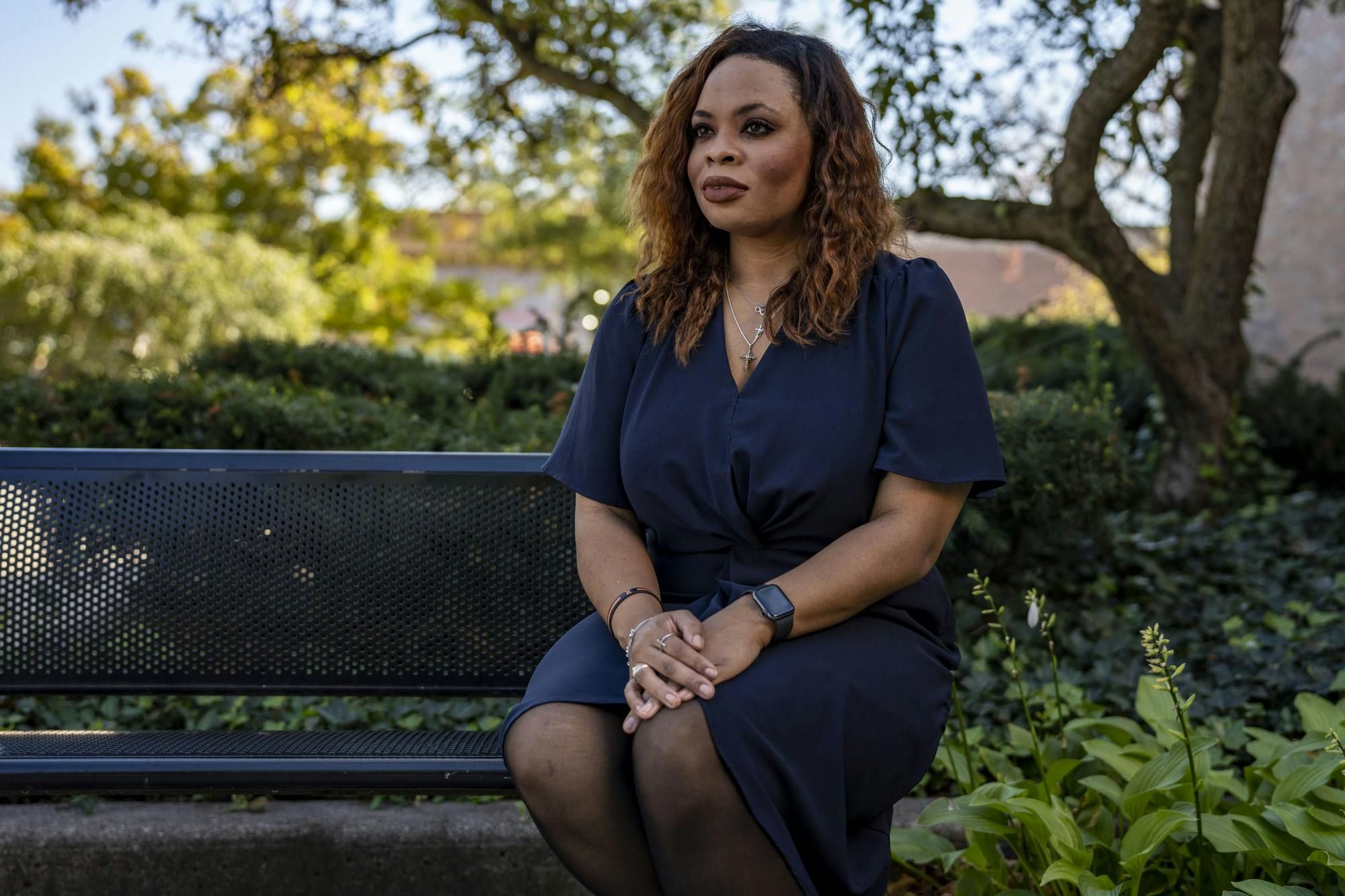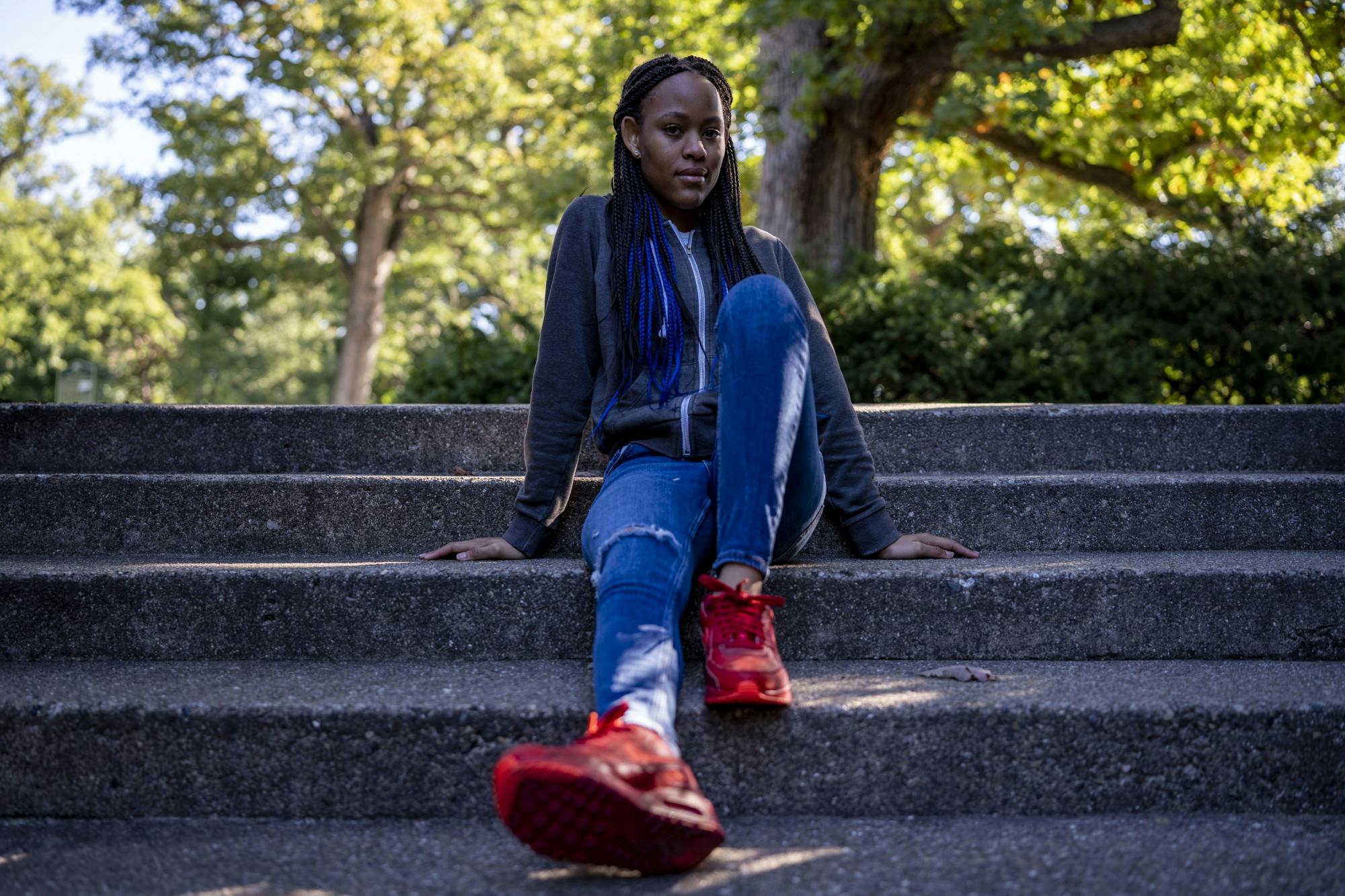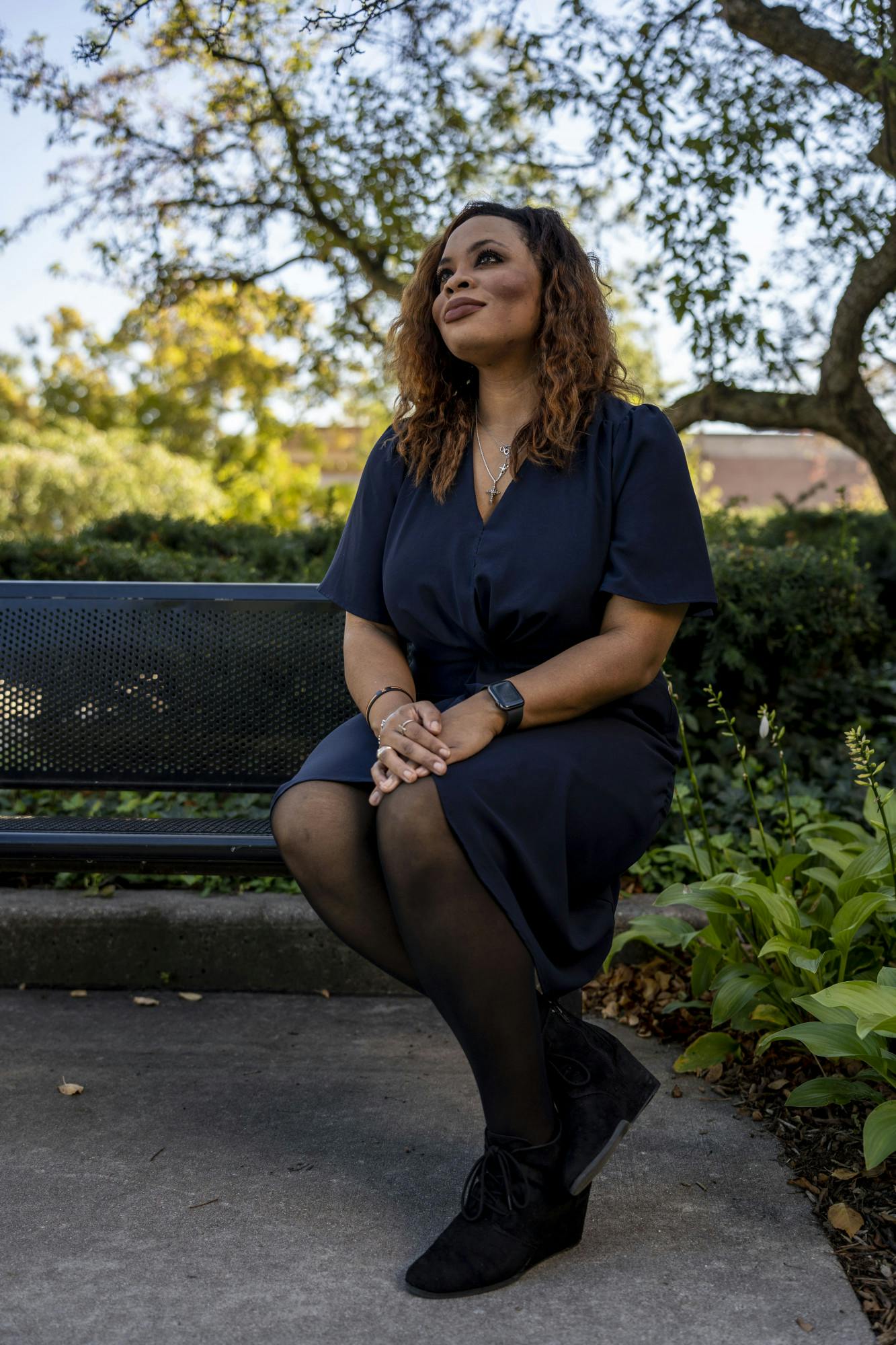Black mental health.
A concept that gets drowned out by the lack of representation and inclusion for Black students on Michigan State University's campus.

Black mental health.
A concept that gets drowned out by the lack of representation and inclusion for Black students on Michigan State University's campus.
The result? Black students' mental health deteriorates, creating feelings of isolation and loneliness.
Graphic design freshman Danielle Givans stepped onto MSU’s campus for the first time in August. Her days have consisted of adjusting to the change and even having encountered some “weird stares” from some white students at the predominately white campus.
“So far it’s been just me adjusting to it like being around a specific set of race,” Givans said. “Like you’ll see your own race … you’ll smile at them, but it seems like you just get weird stares sometimes from people who aren’t Black.”
Mechanical engineering sophomore Chanel Hughes said in an email that with MSU being a predominantly white institution, or PWI, racism is an urgent issue on campus and within the student body.
“Some ways that my mental health have been affected here at MSU is lack of sleep, the workload from all of my classes, stress from normal life situations and racism that is going on around campus,” Hughes said in an email. “I think the school is trying to have more support for us, Black students on campus, but I don’t think it is enough.”

Representation matters; according to Elon University's Center for Engaged Learning, “racial minorities represent about 15% of the college-aged population in the US, but at top-tier institutions, their presence represents only about 6% since 1980.”
Proper representation of racial and ethnic groups can benefit the student body on such a grand scale and can help limit some of the conflicts that come with being a Black student at a PWI.
“So far I’ve seen all the Black groups during Sparticipation, but now I don’t see many flyers about it anymore,” Givans said. “So I don’t know where to go for that kind of stuff.”
According to MSU's 2021-22 Fall Enrollment Report, 3,438 students identify as African American at Michigan State University. Prioritizing Black mental health is important because these students deserve adequate counseling resources tailored to help them specifically.
“The lack of representation for Black mental health makes me feel like the school doesn’t really want to help us,” Hughes said in an email. “I definitely feel like it is making others like me feel unheard because of how the school says that they want to help but not really doing anything to actually help.”
Professors like assistant journalism professor Christina Myers do as much as they can to promote a positive atmosphere in the classroom and to help demonstrate the extra support needed for the few black students in their classrooms. She said she believes that supporting Black mental health at a PWI is essential.

Feeling alone and isolated at college can seriously hurt a student's mental health, especially if the student is a racial or ethnic minority. Students said an example is going to Black students for Black issues. This creates more isolation barriers and leads to the destruction of diversity planted at any university, not just Michigan State.
“I’m a product of a ... predominantly white institution in the state of South Carolina,” Myers said. “I just recall being an undergrad student … looking around and I was one of the few (Black undergraduate students).”
Myers said that many Black students coming to PWIs experience a “culture shock” — getting around different groups of people who share different values, beliefs, religious practices, cultural differences and racial differences can be overwhelming.
Support student media! Please consider donating to The State News and help fund the future of journalism.
Coming into a space where you do not see yourself, it is important to find that community, a community where you don't have to be forced to fit in, Myers said.
“I think oftentimes we are afraid to voice our concerns, voice those feelings and emotions that we have just from being in a space and you’re walking around like ‘Where are my people?’” Myers said.
It is important for students to voice out their concerns and not be afraid to stand up for themselves and for the community they represent and stand for.
“There are so many pressures in life now … there’s so many intersecting traumas,” Myers said. “We’re dealing with violence. We’re dealing with the killings of unarmed black men and women and the mistreatment of our community on top of dealing with COVID, health care disparities, the economy … there’s all these intersecting issues and then when you’re thrown into a huge college campus dealing with the pressures of being a student alone, all of that can be burdensome.”
Myers said she supports Black excellence. She said she wants her classroom to promote a safe and healthy space to “reel in” those Black students who have no community or who have no idea just how much impact their voice can make.
“It is my hope to articulate in my classroom and the opportunities that I have to serve in this college to let all students, no matter if they look like me or not, know that (they) have a very unique voice and perspective,” Myers said. “And I feel like that is something that we can do to help reach, specifically students of color. To let them know that they are important, they matter … their lived experiences matter in this space.”
Many students at MSU wouldn’t understand the specific isolation and racism that Black students experience unless they were black. That is why Myers said it is so important for mental health to be highlighted for anyone so that everyone on this campus can feel respected. It is crucial that more professors and faculty take into consideration Black mental health so the Black students on this campus feel heard.
“These are our narratives we’re talking about,” Myers said. “If I have the opportunity to correct some folks, imma do it. I don't care what it takes.”